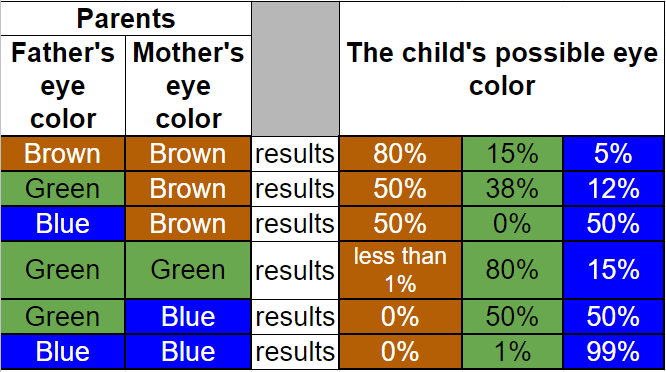LESSON GOAL
Let’s check our lesson goal.
In this material, you will learn the words and phrases that are used when you talk about genetics and heredity and express your opinions about specific topics.
In this material, you will learn the words and phrases that are used when you talk about genetics and heredity and express your opinions about specific topics.
この教材では、遺伝に関連した語彙や表現を学び、特定の話題について意見を述べる練習をします。
PART A_1
Choose the correct idiom to complete each sentence.
PART A_2
| family man | black sheep | spitting image |
| Cold blood | bad blood | flesh and blood |
| 1. | Isabel is the ________ of her mother. They both have the same facial features. |
| 2. | There’s a ________ between Joshua and his father. They’re not on speaking terms for days. |
| 3. | She always felt that she’s the _______ in the family. She’s the rebel one. |
| 4. | Robert rarely goes out with his officemates. He is a ________ and would rather spend his leisure time with his wife and kids. |
| 5. | The doctor refused to operate on the patient because it’s his own _______ . |
PART A_3
Make sentences using the given idioms.
PART A_4
| 1. black sheep | |
| Answer: | |
| 2. spitting image | |
| Answer: | |
| 3. family man | |
| Answer: | |
| 4. bad blood | |
| Answer: | |
| 5. flesh and blood | |
| Answer: |
PART B_1
Study and analyze the graph carefully.
PART B_2

PART B_3
Use the following words to explain the data.
PART B_4
PART C_1
Let’s talk. Please answer my questions. You may ask me questions too.
PART C_2
| 1. | What hereditary diseases/traits do you know? |
| Answer: | |
| 2. | Is having a high intelligence quotient or IQ hereditary or learned? |
| Answer: | |
| 3. | In the near future, parents can design their unborn child to their liking with the help of genetic engineering. Do you agree with this? Why or why not? |
| Answer: | |
| 4. | What hereditary traits did you get from your parents or family relative/s? |
| Answer: | |
| 5. | What are the pros and cons of cloning humans? Do you agree with this method or not? |
| Answer: |
REVIEW AND FEEDBACK
Now, let us review the things that you learned in this lesson.
ではこのレッスンで学んだことを振り返りましょう。
(Please give a short feedback on how your student did in your class.)
| Grammar 文法 |
Pronunciation 発音 | Vocabulary 単語 |
Comprehension 理解 |
|
|---|---|---|---|---|
 GOOD GOOD |
文法の誤りはほとんどなく、完全な文章で話すことができる | ほとんどの単語をはっきりと正しく発音することができる | 習った表現を適切に使うことができる | 文章を理解し、質問に正しく答えることができる |
 FAIR |
文法の誤りはあるが、完全な文章で話すことができる | 発音の練習が必要な言葉がいくつかある | たまにミスはあるが、習った表現を適切に使うことができる | 文章を完全に理解するのは難しく、質問に正しく答えられないときもある |
 POOR |
文章で話すのは難しく、単語だけで話すことができる | 発音の練習が必要である | 習った単語と表現を少しだけ使うことができる | 文章を理解するのは難しく、質問に答えるのは難しい |
レッスン教材に関するアンケートのお願い
レッスン教材の改善・拡充を図ることを目的とし、アンケートを実施しております。
以下のURLからアンケートにお答えいただき、 ご意見・ご要望をお聞かせください。
アンケートはこちら